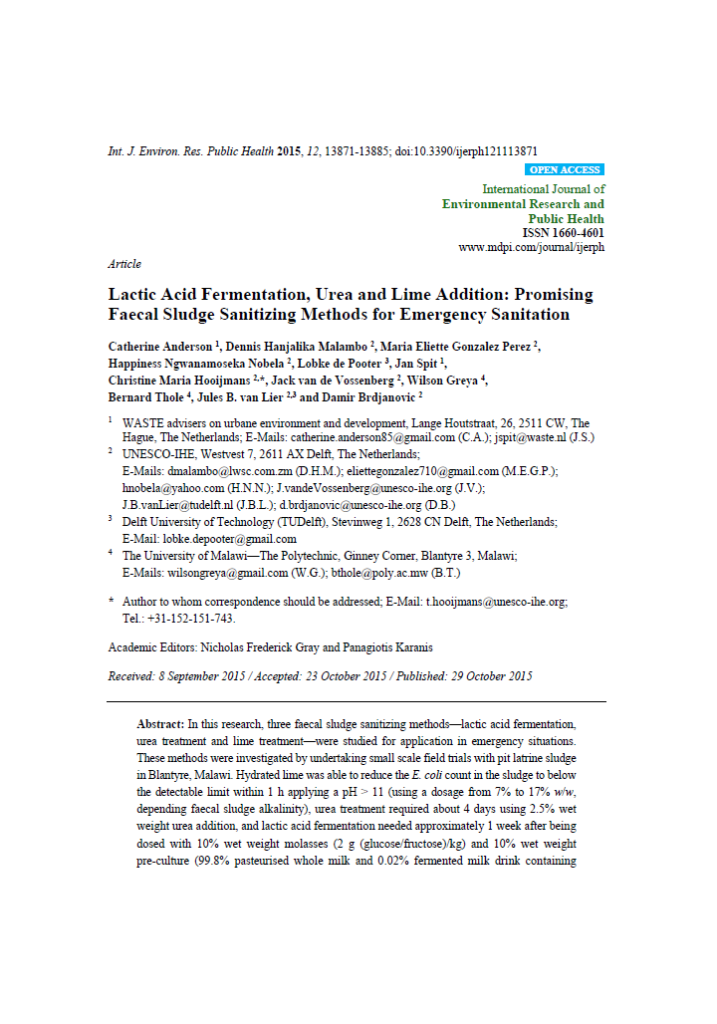Still have questions?
You could not find the information you were looking for? Please contact our helpdesk team of experts for direct and individual support.

Sanihub - search - Lactic Acid Fermentation, Urea and Lime Addition - Promising Faecal Sludge Sanitizing Methods for Emergency Sanitation
Author: Anderson, C., Malambo, D. H., Perez, M. E., Nobela, H. N., de Pooter, L., Spit, J., Hooijmans, C. M., de Vossenberg, J. V., Greya, W., Thole, B., van Lier, J. B., Brdjanovic, D.
Year: 2015
Publisher: Environmental Research and Public Health Journal
In this research, three faecal sludge sanitizing methods—lactic acid fermentation, urea treatment and lime treatment—were studied for application in emergency situations. These methods were investigated by undertaking small scale field trials with pit latrine sludge in Blantyre, Malawi. Hydrated lime was able to reduce the E. coli count in the sludge to below the detectable limit within 1 h applying a pH > 11 (using a dosage from 7% to 17% w/w, depending faecal sludge alkalinity), urea treatment required about 4 days using 2.5% wet weight urea addition, and lactic acid fermentation needed approximately 1 week after being dosed with 10% wet weight molasses (2 g (glucose/fructose)/kg) and 10% wet weight pre-culture (99.8% pasteurised whole milk and 0.02% fermented milk drink containing Lactobacillus casei Shirota). Based on Malawian prices, the cost of sanitizing 1 m3 of faecal sludge was estimated to be €32 for lactic acid fermentation, €20 for urea treatment and €12 for hydrated lime treatment.
"*" indicates required fields
You could not find the information you were looking for? Please contact our helpdesk team of experts for direct and individual support.


This website uses cookies so that we can provide you with the best user experience possible. Cookie information is stored in your browser and performs functions such as recognising you when you return to our website and helping our team to understand which sections of the website you find most interesting and useful.
Strictly Necessary Cookie should be enabled at all times so that we can save your preferences for cookie settings.
If you disable this cookie, we will not be able to save your preferences. This means that every time you visit this website you will need to enable or disable cookies again.
This website uses Google Tag Manager to collect anonymous information such as the number of visitors to the site, and the most popular pages.
Keeping this cookie enabled helps us to improve our website.
Please enable Strictly Necessary Cookies first so that we can save your preferences!
More information about our Cookie Policy
